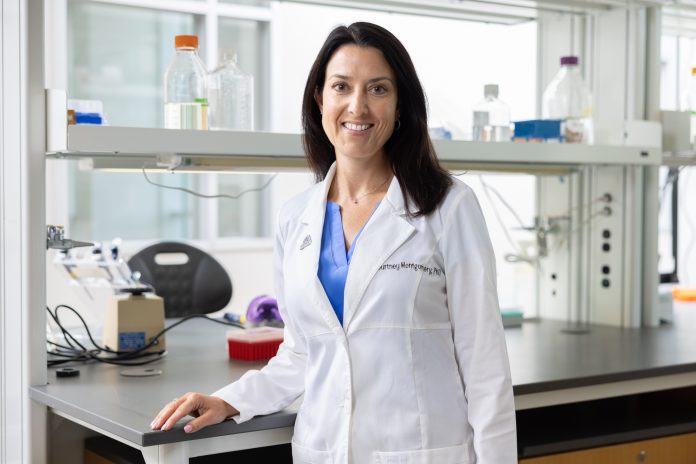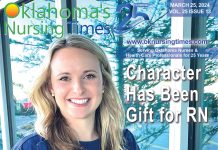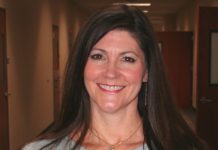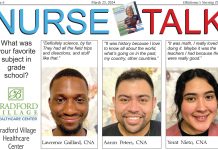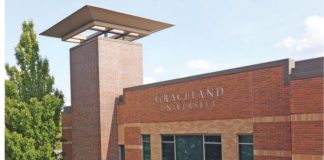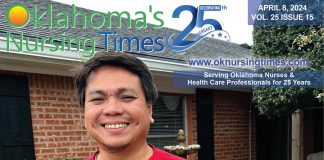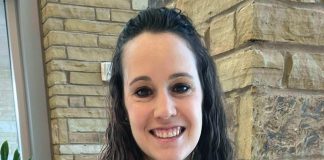Sometimes in science, bigger is better. That can be especially true when it comes to learning from large sets of data.
That’s why Oklahoma Medical Research Foundation scientist Courtney Montgomery, Ph.D., has been a member of the medical research collaboration TOPMed for nearly a decade. Sponsored by the National Institutes of Health, the Trans-Omics for Precision Medicine program collects whole-genome sequences from scientists nationwide studying heart, lung, blood and sleep disorders.
The nearly 1,000 researchers who contribute to the database can propose studies to analyze the DNA sequences. In those studies, scientists look for clues that might not be evident in small batches of participants.
A new study published in the journal Science included Montgomery’s lab’s contributions. In it, a Harvard researcher mined the TOPMed database for patterns that could explain genetic mutations. The study detailed seven previously unknown genetic mutation processes that lead to numerous conditions.
“TOPMed allows researchers to dive deep into genetics in a way that would not be possible in a single lab,” said Montgomery, a scientist in OMRF’s Genes and Human Disease Research Program and a member of the steering committee for TOPMed.
Montgomery studies sarcoidosis, a rare and painful inflammatory disease. When volunteers who live with the condition donate samples to her study, they have the option to share their samples with the TOPMed database. There, their DNA is anonymized, sequenced and ultimately, shared with researchers studying conditions like asthma, sickle cell disease and stroke.
“I’ll never have a study of 30,000 people with sarcoidosis in Oklahoma,” Montgomery said. “But when researchers can compare the DNA from lots of different diseases, we can find the commonalities that allow us to build off each other’s work.”
Montgomery has contributed more than 1,400 samples, and the database holds more than 155,000 DNA sequences. Research published last year from the database identified 400 million genetic variants, more than 78% of which had not been described before.
And while Montgomery is on the hunt for answers to the mysteries of sarcoidosis, she hopes Oklahomans who opt in to sharing their data feel good knowing they’re making a difference for people across the country.
“Our study participants may change the lives of people living with dozens of other conditions,” she said. “That’s something we can all be proud of.”
For more information about sarcoidosis research at OMRF, visit www.omrf.org/sarc.


